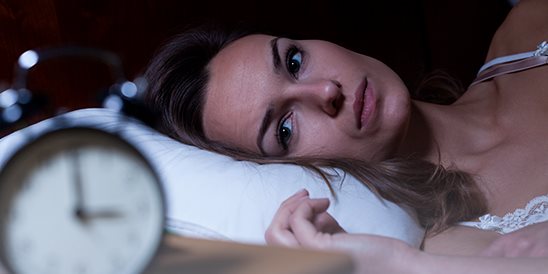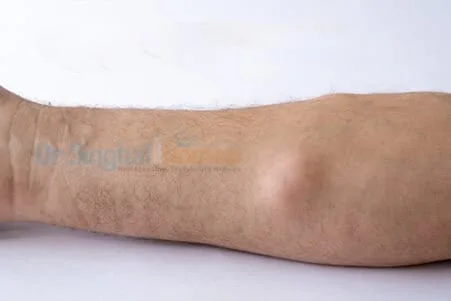America’s Growing Insomnia Epidemic: Sleepless in the United States

Insomnia has affected millions of Americans of all ages in recent years, becoming a widespread problem in the country. Once thought to be a healing and natural process, sleep has become illusive for many Americans. As societal pressures, work, family, and technology demands increase, sleep deprivation and insomnia are becoming serious public health issues. The epidemic of insomnia has serious mental, physical, and financial ramifications in addition to being a cause of exhaustion.
The Problem’s Range
About 50–70 million persons in the United States suffer from a sleep issue, with insomnia being the most common, according to the American Sleep Association. About 30% of adults suffer from short-term insomnia, while 10% deal with chronic insomnia, which is characterized by an inability to fall or stay asleep for three months or more at least three evenings a week. This startling figure suggests that insomnia is a social problem as well as a personal one, affecting not just the well-being of the individual but also general productivity and medical expenses.
The incapacity to initiate or sustain sleep, even when given the chance, is the hallmark of insomnia. People who suffer from insomnia frequently report experiencing daytime tiredness, irritability, and cognitive impairment. Numerous variables, including stress, worry, depression, and chronic pain, as well as lifestyle choices like irregular sleep cycles, excessive screen time, and overuse of stimulants like caffeine, can contribute to insomnia.
Reasons for Sleeplessness
Stress is one of the main causes of sleeplessness in the United States. More than ever, Americans are stressed out these days. An insomniac pattern is exacerbated by financial strain, worries about the future, and the pressure to maintain a work-life balance. Stress sets off the body’s fight-or-flight reaction, which raises cortisol levels and makes it challenging to unwind sufficiently to go to sleep. Sleepless cycles can be sustained by the body staying in a hypervigilant state even after the stressor has been withdrawn.
Technology also has a big part to play. The constant presence of displays, be it from laptops, tablets, cellphones, or televisions, throws off our circadian cycles. These gadgets’ blue light disrupts the synthesis of melatonin, a hormone that aids in controlling sleep-wake cycles. Insomnia is exacerbated by the fact that many Americans spend hours binge-watching TV series or browsing around social media.
Poor sleep quality is also influenced by lifestyle choices such as inconsistent sleep cycles, late-night snacking, and use of stimulants like caffeine and nicotine. The inconsistent sleep patterns of shift workers provide unique issues. Chronic illnesses including arthritis, asthma, and sleep apnea can also interfere with sleep, leading to a vicious cycle of poor health and sleeplessness.
The Effects on Health
Prolonged sleeplessness is more than simply a bother; it may have detrimental effects on one’s health. Sleep is necessary for emotional control, cerebral clarity, and physical recuperation. The body is more susceptible to a variety of health problems when it is sleep deprived.
The effect sleeplessness has on mental health is among its most noteworthy side effects. Anxiety, despair, and irritable symptoms are made worse by sleep loss. Actually, sleeplessness frequently contributes to mental health illnesses as well as being one of their symptoms, which exacerbates both conditions in a vicious cycle. Research has indicated that there is a higher likelihood of depression in people with insomnia, and sleeplessness is common in people with depression.
In terms of health, persistent sleeplessness has been connected to heart problems like high blood pressure, heart attacks, and strokes. In addition to raising blood pressure and causing inflammation, sleep deprivation also strains the heart more. Furthermore, it has been demonstrated that getting too little sleep compromises immune system performance, increasing a person’s vulnerability to infections and long-term ailments.
In terms of cognition, insomnia affects focus, memory, and decision-making. Sleep deprivation impairs cognitive function since sleep is necessary for processing and storing memories. This may result in mishaps, decreased output, and poor judgment, which could have an impact on both personal and professional performance. In fact, because of missed work, absenteeism, and medical costs, insomnia is thought to have a billion-dollar financial impact in the United States.
Effects on Society and Economy
Sleeplessness affects society in ways that go well beyond personal health. When workers arrive at work after a sleepless night, workplace productivity decreases. They take sick days more frequently, are less productive, and are more likely to make mistakes. According to a 2016 RAND Corporation study, the United States economy loses about $411 billion a year as a result of inadequate sleep. The medical expenses incurred in treating sleep problems and their accompanying conditions exacerbate this financial burden.
In addition, sleeplessness exacerbates interpersonal conflicts and social isolation. People who experience sleeplessness frequently feel cut off from their loved ones because of mood swings, agitation, and exhaustion. Maintaining social interactions may become challenging, which exacerbates depressive and lonely feelings.
Handling the Epidemic of Insomnia
An interdisciplinary strategy is necessary to treat the growing insomnia epidemic. Collaboration among healthcare professionals, employers, and individuals is crucial to establish sleep hygiene-promoting environments. Treatments for persistent insomnia that work best include cognitive-behavioral threat for insomnia a systematic program that teaches individuals how to create healthy sleep patterns. To further enhance the quality of your sleep, try reducing the amount of time you spend on screens before bed, developing regular sleep schedules, and designing a peaceful sleeping environment.
Workplaces can also contribute by emphasizing the value of rest and fostering wellbeing. One way to lessen the stress that frequently results in restless nights is to encourage staff to take breaks, support mental health, and offer flexible work schedules.
To sum up,
The prevalence of insomnia is rising in the US, and it has a significant impact on people’s physical and emotional health as well as the economy. There is a growing need for all-encompassing treatments as more Americans experience insomnia. Reversing this trend and encouraging healthier, more restful sleep for everyone would require addressing insomnia on a personal and cultural level.




